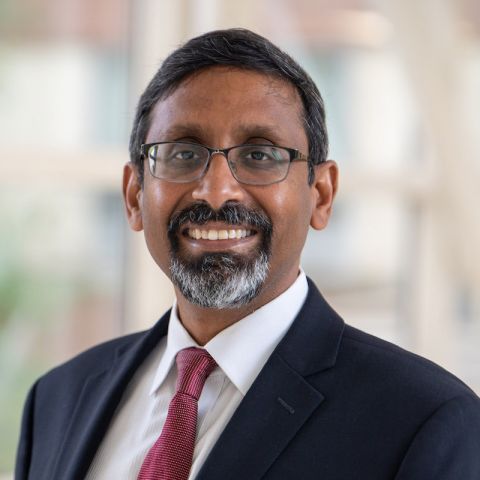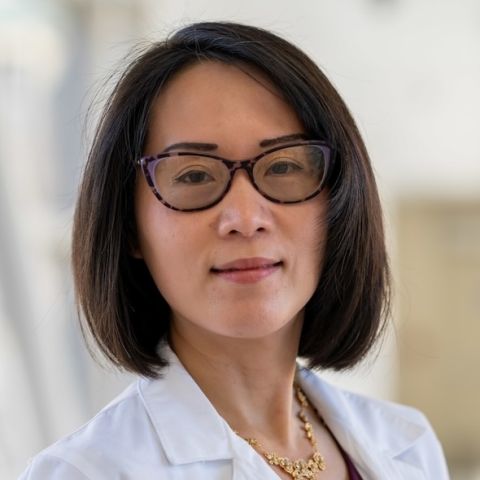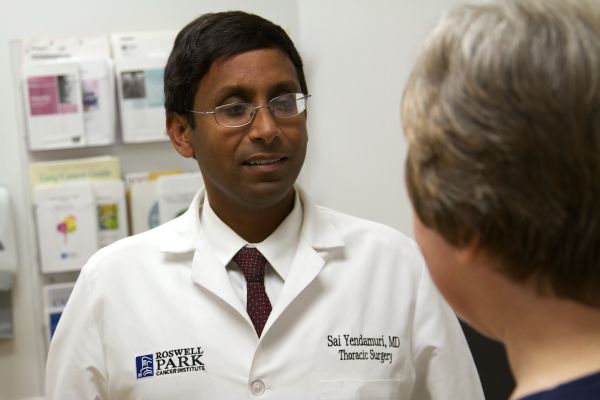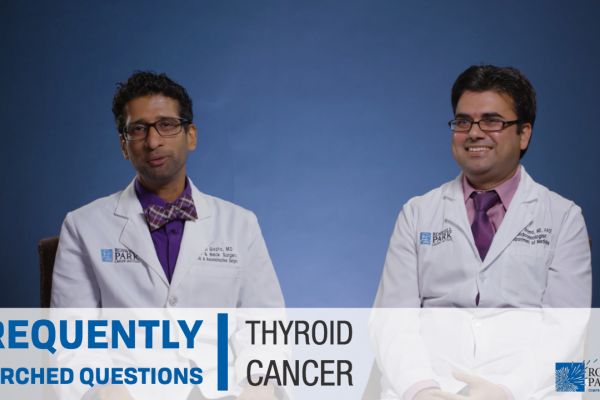You ask the Internet a lot of questions, and Roswell Park has some answers. Sai Yendamuri, MD, FACS, Chair of Department of Thoracic Surgery and Grace Dy, MD, at Roswell Park Comprehensive Cancer Center, sat down to answer some of the internet's most-searched-for questions related to lung cancer.
What causes lung cancer?
The No. 1 cause of lung cancer is tobacco use — mostly smoking cigarettes — and another common cause is exposure to asbestos.
But at Roswell Park we’re seeing more and more lung cancer patients who have never smoked. Lung cancer in never-smokers is often liked to radon, an invisible, odorless gas that’s produced naturally when uranium decays in rocks and soil. It rises through the ground and enters homes through cracks in floors, walls and foundations, or around sump pumps.
Studies also suggest that lung cancer can be caused by air pollution or by inhaling cancer-causing substances in the air (for example, in the workplace).
Can you get lung cancer from smoking marijuana?
There's not much evidence showing a link between smoking marijuana and developing lung cancer. Many people who smoke marijuana also smoke cigarettes, so it's difficult to separate the two causes.
How is lung cancer treated?
The treatment for lung cancer depends mostly on the stage of the disease at the time of diagnosis. If the cancer is limited to just a portion of the lung or to a particular area of the chest, and if the patient can tolerate it, the usual treatment is surgery. Most of the time the surgery can be done minimally invasively — in fact, more than 90% of lung cancer patients at Roswell Park undergo minimally invasive surgery.
If a patient cannot tolerate surgery due to additional medical problems, radiation is an option. Roswell Park offers new types of radiation treatments that make this a very safe and convenient alternative.
If the cancer has spread beyond the lungs and into other areas of the chest, treatment options will vary based on what we know about how these cancers grow and spread. These include systemic therapies — treatments that circulate throughout the body — which tend to be traditional chemotherapy or one of several targeted therapies (drugs or other substances that identify and attack specific types of cancer cells with less harm to normal cells than traditional chemotherapy). Immunotherapy, an even newer option, uses the immune system to fight the cancer. In many circumstances, these therapies may be combined.
What are the warning signs of lung cancer?
By the time patients develop the symptoms of lung cancer, usually it’s quite late in the disease process. Symptoms may include repeated infections, hemoptysis (coughing up blood) and losing weight. They may also experience bone pain, because the cancer has spread to the bones, or they may have headaches if it has spread to the brain.
The best time to diagnose lung cancer is in the early stages, when the patient does not have any symptoms, because at that point it’s often possible to cure it. Early detection is the goal of Roswell Park’s Lung Cancer Screening Program, designed for people at high risk of developing lung cancer. You’re at high risk if you:
- Have already been diagnosed with cancer of the esophagus, head or neck, or had a previous diagnosis of lung cancer, or
- Fall into these three categories:
- Age 50 and older
- Have at least 20 pack years of smoking
- Were an active smoker within the last 15 years (even if you've quit)
If it’s determined that you’re at high risk for lung cancer, you’ll be eligible for this screening program. To find out whether you qualify, call 1-800-ROSWELL (1-800-767-9355), or fill out the online risk assessment form and one of our cancer information specialists will contact you.



